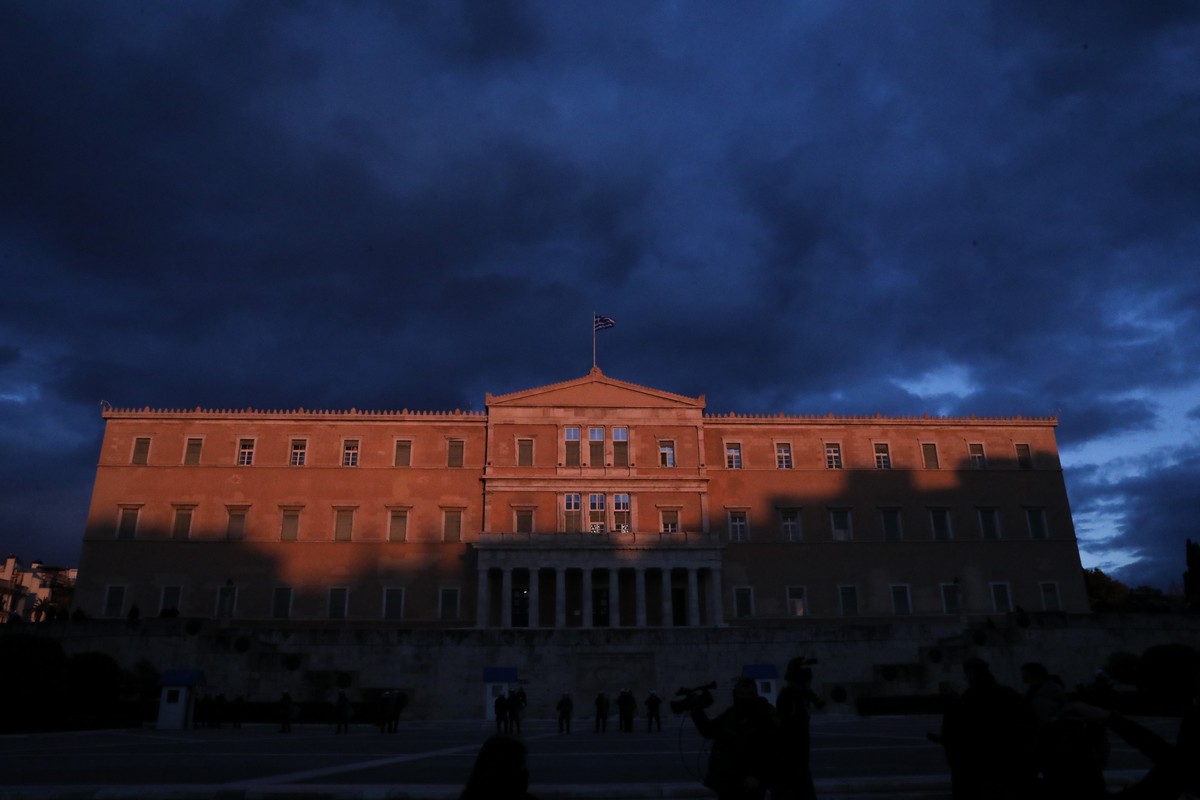
Ukraine: In the countryside of the southern front, the poorest are sown under bombardment
In front of his boss’s house, which was recently bombed, Vasily Kochic swears against those “Russian bastards” who are destroying his village a little more every day, then pick up his shovel: “I must work. I have nowhere else to go.”
Mala Tokmachka, 70 km southeast of Zaporizhia and a few kilometers from the invisible line separating Moscow’s forces from Kyiv’s forces in southern Ukraine, is awakened every night by Russian missiles slashing through the sky, and meditates on their disastrous contribution every morning.
Recently, the metal fence of Vasily’s employer was playing the accordion. Several windows of his aging tractors parked in the park blew out. Rubble scattered on the ground. The small bomb responsible for the damage left its mark, a clean hole in the ground, right in front of the house.
On the other side of the street is the roof of a red brick building that was destroyed by another shell. “The neighbor was in the kitchen. I went to hide in the fields,” said Vasily, before adding: “Thank God the cow is still alive. »
Vasily Kochic is one of a few hundred residents who decided to stay in the village, which was abandoned by thousands of others after two months of conflict. The last common denominator of the site is to be the poorest, often the oldest, and to have wealth only what gives them land.
Vasily is 63 years old, but he looks fifteen years older, his face is toothless and somewhat wrinkled. His field jacket “was given to her by a prison guard. His baggy pants” date back to the Soviet era. He lives in a small area that “trembles” with all the Russian influence.
– ‘Like naked’ –
“I’m naked, sighs the former driver, who has been doing odd jobs for thirty years. I have no money to buy anything.”
Since no one is waiting for him, this divorced father of five children, none of whom he had contact with, would like to “bury” Katsabi alive – a pejorative term for Russians. But he knows that he will not stand a chance against them with his only shovel, and therefore he will remain in Mala Tokmachka.
“If we don’t grow potatoes, we won’t reap any. Same for onions. And then the cows will starve to death,” he is afraid, while newspapers wrap some of the tobacco he grows himself.
A disaster for whose parents, born in 1927, suffered the Great Famine of 1932-1933 – known as the Great Famine, which Kyiv describes as a “genocide” orchestrated by Stalin – between 1946 and 1947. I taught him This drama is one thing: “You cannot live on water alone, but you live on milk. »
Olga Toss, who hosts Vasily, accuses him of being a “drunk”: “When he drinks, we don’t get close to him. Then, how are you. »
– ‘Bastards’ –
But the strong sexual lady, who tied her hair under a purple handkerchief, shares with him two values that now make up a cardinal in rural Ukraine: first, her hatred of the Russians, which this woman who worked for 20 years in Moscow describes as “bastards”, especially his desire to sow the land, Because according to a local proverb, “When the flowers begin to bloom, it is all over.”
Olga wants to believe that the war will “end soon”, and she “does not think for a moment” that the troops from Moscow can take Mala Tokmashka, despite the roaring missiles above it.
It is clear that the “rich” who fled the village did not make a bet, unlike the “poor” who remained there, she said.
For several days, AFP was able to monitor several convoys of combines and other gleaming tractors on the secondary roads to Zaporizhia, a large southern city still under the control of Kyiv.
“The goal is to prevent the Russians from looting these devices,” said Yuri, a regional defense official from Mala Tokmachka.
Natalia Pointskaya and her husband Gennady, in their early 60s, seem out of these considerations. The couple could not leave because Natalia’s mother, Vera, a young woman in the twilights of her life, did not want to die anywhere but in the village where she was born.
“I get scared when he shakes a lot. So, I just lay down and look out the window,” says this 84-year-old woman, who says she can no longer walk, “not because of illness but because of (her age).”
Then the old lady thinks of a future without war, or of her glorious past, when she “ran, ran, ran.” Without any bombs to avoid.

“Hipster-friendly coffee fanatic. Subtly charming bacon advocate. Friend of animals everywhere.”





More Stories
EFFET: Refers to fresh pasta
Shock and horror!!! Hundreds of coffins containing the bodies of NATO soldiers return by flights from Ukraine
Will Türkiye give T-155 Firtina howitzers to Ukraine via the United States?